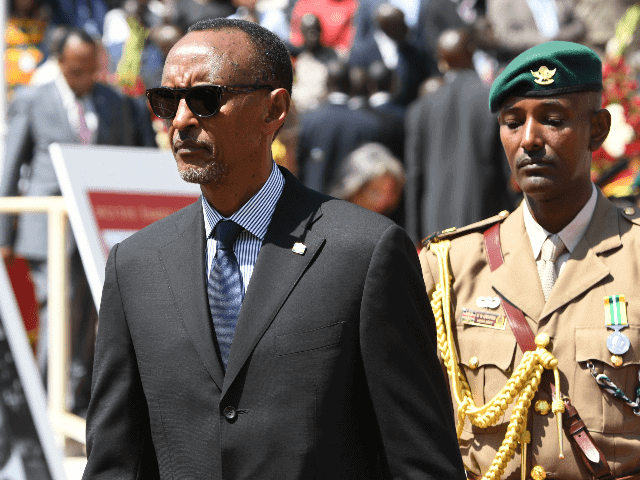Rwanda Approves Legislation Allowing Russia to Build Nuclear Facilities

The government of Rwanda approved a plan on Monday to build a center of nuclear science and technologies aimed at promoting economic growth, the Russian state atomic company Rosatom announced on Tuesday.
In a plenary session of the Rwandan Chamber of Deputies on Monday, lawmakers approved legislation ratifying a recent agreement between Rwanda and Russia on the joint cooperation in the construction of the Centre of Nuclear Science and Technology in the African country.
The agreement, signed in the Russian city Sochi in October, will reportedly allow for scientific research and “practical application” of nuclear technologies that the country’s Ministry of Infrastructure hopes will advance several sectors of the economy including agriculture, health, education, sciences, and industry.
Rwanda’s Minister of Infrastructure Claver Gatete explained that his government was only beginning the process of employing nuclear energy applications for “peaceful purposes,” such as the preservation of foods using nuclear technology and improving security devices in vehicles.
“If we do not have skills in such areas, we have a big problem,” he argued. “That is why we want to build the prerequisite skills, which requires laboratory and trained people.”
The deal did not go down without debate, with the chairman of the Democratic Green Party of Rwanda, Dr. Frank Habineza MP, admitting his concern of sufficient evidence that the “negative impacts that overweight the benefits,” citing issues of waste management and the 1986 Chernobyl nuclear disaster.
“Why do we spend money on something that will kill us and has waste effects?” he asked lawmakers. “This is a bomb that can blow and kill us in millions and have a lasting impact on the community and neighbors. How are we going to account for this to the next generation?”
MP Damien Nyabyenda, who tabled the legislation, cited the new jobs and other benefits it could bring to the economy, as well as the various international agreements that have already been signed to meet the necessary standards of waste management in line with regulations set out by the International Atomic Energy Agency.
“Already the first batch of 50 Rwandans are doing masters in nuclear sciences and will return here to implement the project to improve agriculture research, food and medicine storage, including geological studies,” Nyabenda said. “Yes, few countries have nuclear in Africa but we as Rwanda are sovereign and can do what is beneficial to us without looking to others that is why we choose to buy in the project.”
“Rwanda has a plan to do a feasibility study on how to monitor and implement the projects and its impact—in case of an accident,” he added.
Rosatom is the world’s biggest nuclear company in terms of foreign custom, with 36 countries including Bangladesh, Belarus, China, Egypt, Finland, Hungary, India, and Turkey, all having purchased their technology. It is also the largest supplier of electricity in Russia.
Last week, the organization also announced it had agreed to a deal with Ethiopia to help develop its nuclear infrastructure. It is currently also in talks with South Africa about the possibility of building more nuclear reactors, although President Cyril Ramaphosa recently put these plans on hold.
Photo: SIMON MAINA/AFP via Getty Images




